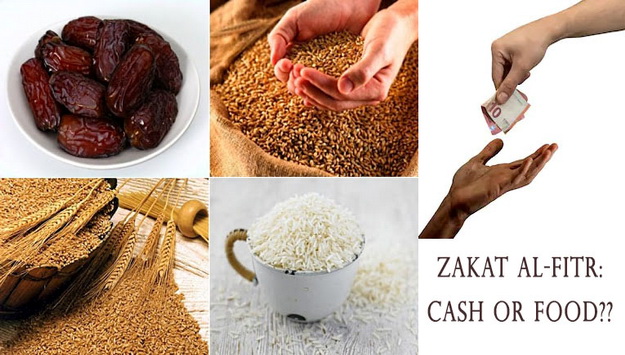In The Name of Allaah, The Most Merciful, The Bestower of Mercy
O people! Fear Allaah (The Most High) and thank Him for the apparent and unapparent blessings He has bestowed upon you. He has not ceased granting you occasions of good and virtue. The month of hajj has elapsed and now you have reached the month of Al-Muharram, which Allaah has specially chosen.
Firstly: Muharram is amongst those months in which Allaah made fighting forbidden. Allaah (The Most High) said:
“Verily, the number of months with Allah is twelve months (in a year), so was it ordained by Allah on the Day when He created the heavens and the earth; of them four are Sacred.” [Quran, 9:36]
These four months are: Dhul-Qa’dah, Dhul Hijjah, the Month of Muharram and Rajab— Allaah made fighting forbidden during these months in order that those who performed the Hajj and Umrah are safe in their journey to Hajj and Umrah. However, when Islaam came —all praise is due to Allaah— safety became widespread and the disbelievers were driven away and Jihaad in the path of Allaah (The Might and Majestic) was established whenever that was possible.
Indeed this month of Muharram has virtue; the Messenger (Sallallahu alayhi wassallam) said: “The best fasting after the month of Ramadan is the fasting in the month of Muharram.” So it is desired to increase in fasting during this month. It is the month that the companions —during Umar’s time (radhiAllaahu anhu)— chose to be the beginning of the Hijri calendar.
Virtues of the Month of Muharram
Amongst its greatest virtues is that the Day of ‘Ashura is found within it. It is a Day in which the Prophet (Sallallahu alayhi wassallam) selected for the performance of fasting. Likewise, Musa (alayhis salaam) fasted on this day in order to thank Allaah for drowning pharaoh and his people. And after the death of Musa (alayhis salaam), the Jews also used to fast on this day of ‘Ashura.
When the Messenger (Sallallahu alayhi wassallam) arrived in Madinah, he found the Jews fasting on this day of ‘Ashura, so he said to them: “What is this fasting of yours?” They said: “It was the day Allaah gave victory to Musa and his people and humiliated pharaoh and his people. Indeed, Musa fasted on this Day, so we also fast.” So the Messenger (Sallallahu alayhi wassallam) said: “We have more right to (follow) Musa than you.”
The Messenger (Sallallahu alayhi wassallam) continuously fasted this day and commanded the companions to fast as well. However, the Messenger (Sallallahu alayhi wassallam) want us to oppose the Jews, so he commanded us to fast a day before ‘Ashura (i.e. the 9th of Muharram) before fasting on the 10th (i.e. Day of ‘Ashura); and it is stated in another narration: “A day after it (i.e. a day after ‘Ashura);” but fasting on the 9th day of Muharram before fasting the 10th of Al-Muharram (i.e. the day of ‘Ashura) is more established.
So we fast on the day of ‘Ashura (i.e. the 10th of Muharram) in order to follow the example of Allaah’s Prophet Musa (alayhis-salaam), and it was the day in which Allaah gave victory to the Muslims (of Bani Israaeel). It is victory for the Muslims until the Day of Judgement and a blessing from Allaah (The Mighty and Majestic) for which He is thanked through the act of fasting.
Fasting on the Day of ‘Ashura is a Sunnah Mu-akkadah [i.e. a practice the Prophet (Sallallahu alayhi wassallam) performed continuously). Therefore, the Muslim fasts on the 9th of Muharram and the 10th of Muharram, and this is a Sunnah that has continued —all praise is due to Allaah— and fasting on this day is emphasized, whilst seeking Allaah’s reward and in order to thank Him.
The way of the Prophets and their true followers is that they thank Allaah for giving them victory through performance of acts of obedience and remembrance of Allaah. However, they do not innovate anything in this affair because that was the way of the people of the Pre-Islamic period of ignorance. It is not permissible for a Muslim to exceed the limits in this affair.
As for the Shia, they make the Day of ‘Ashura a Day of sadness, weeping and wailing —may Allaah disfigure them— because it was the day Husain (radhiAllaahu anhu) who was murdered. Indeed calamity is not to be faced with wailing, sins and evil deeds; rather it should be faced with obedience to Allaah and hoping for Allaah’s reward. There is no doubt that the killing of Husain (radhiAllaahu anhu) was a calamity, but Allaah commanded us to exercise patience and hope for His reward during calamities. What is legislated on this Day of ‘Ashura is that we fast and there should be no newly invented matters in the religion.
Likewise, there are those ignorant ones amongst the Sunnis who consider this Day as a day of happiness and some of them call it the New Year; so they behave generously towards their children, serving them food and bestowing gifts to one another. Indeed, these affairs are innovations and newly invented matters in the religion, and they are not permissible. This action of those ignorant Sunnis is the other side of falsehood compared to the actions of the Shia!
The Shia grieve and the ignorant Sunnis display happiness. Do they (i.e. these ignorant Sunni) show happiness for murder of Husain (radhiAllaahu anhu), because this ignorant act will be considered as a manifestation of happiness due to the murder of Husain (radhiAllaahu anhu) on this Day. Therefore, it is obligated upon the Muslim to follow the Sunnah and abandon innovations in the religion. Innovations in the religion are not opposed with other innovations worse than them; rather innovations are opposed by abandoning them and reviving the Sunnah.
Source: http://alfawzan.af.org.sa/node/15019 [Paraphrased and abridged]
 navedz.com a muslim's Quest for the truth
navedz.com a muslim's Quest for the truth







